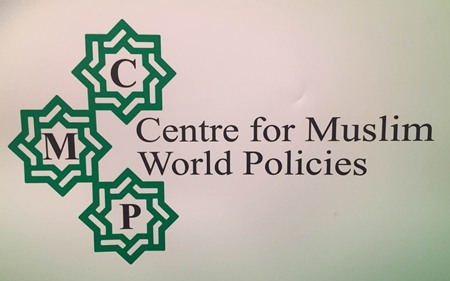BANGKOK, 26 May 2015 – Plans and recommendations were under discussion today in Bangkok to better develop a strategy to allow Thai Halal food products to better penetrate the world market. The discussions took place at the Muslim World Policies Conference 2015, held on the topic: Muslim World Connectivity: Myths and Facts.
Prof. Dr. Isra Santisart, Director of the Center for Muslim World Policies, revealed that Thailand’s Halal food market share exists, but satisfaction with its size is muted, when compared to the growth of other Halal food exporting countries like Malaysia and Indonesia. Thailand’s market share in the Muslim world of Arab, Africa and Asia has in fact been shrinking over the past 12 years.

Dr. Isra revealed facts and figures at the conference that showed Halal products have not been much supported here in Thailand and the growth of the Thai Halal food export market in the world was due to the increasing number of Muslim citizens at 2% year-on-year. Despite quality Thai food production, Thai Halal products are not able to compete successfully on the world market. The main reason is that Thailand and a majority of the manufacturers of Halal food within the country are not Muslim. Questions could therefore be raised as to the extent of the knowledge of proper Halal food production.
In order to build confidence in Thai Halal food products, the Thai government needs to make Halal food processing regulations very strict, unlike today.
“Any restaurant, any hotels in Thailand who show the Halal certificate have to be certified first but during this time many Halal restaurant, many Hotels that are non-Muslim still use the Halal logo on their own” Dr. Isra stresses that by simply using the logo without being officially certified, once the Muslim
customers realized that the restaurant does not correctly process the food by the Halal standard, it creates a negative perception and also lowers the country’s Halal brand trust worthiness.
Dr. Isra suggests that the Halal food production should be shifted to the south or even to Malaysia and Indonesia to get access to better trading routes for export to Arabian countries and to Africa, using the ports in Malaysia and Indonesia instead of the Leam Chabang deep sea port will help to save on costs by 30-50%. Using Malaysia and Indonesia as the countries of production, because they are Muslim countries should also help to increase reliability. If production should occur in Thailand, the word Made in Pattani should be use as the Muslim World knows more about Pattani province. Furthermore, Muslim
manufacturers should be supported, while other strategies must be studied to further penetrate the Muslim World market. In the Arab World, they prefer high quality products, and good packaging, while African countries prefer food at a lower price fit for the mass market. It’s hoped these strategies will help Thailand with its exports of Halal food to the Muslim World.




